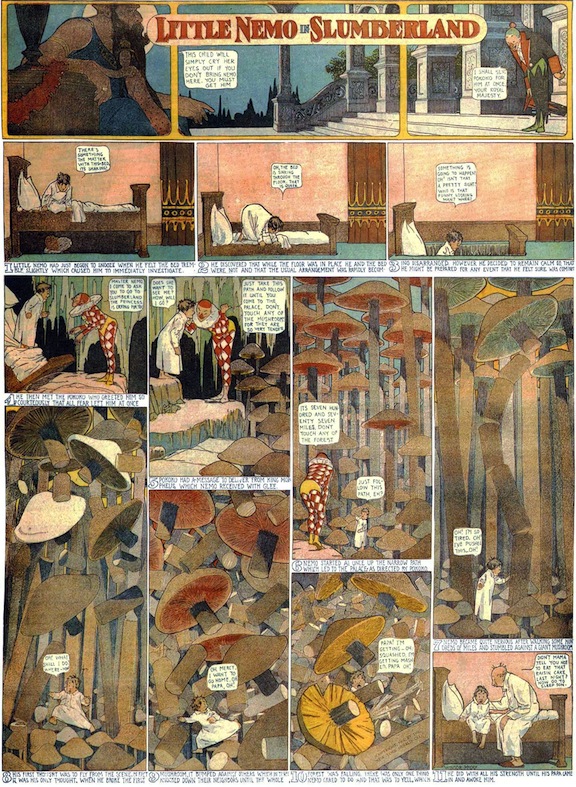
Young American pianist Ryan MacEvoy McCullogh, who has a local connection via the Royal Conservatory’s Glenn Gould School and who makes his Toronto Symphony début next season, presents a solo recital at Gallery 345 on Thursday night. It’s a fascinating programme of short solo pieces — all less than 50 years old. He explains the music and his choices:
- OPEN LETTER | Christina Petrowska Quilico Remembers Pierre Boulez - January 7, 2016
- Op-ed: The Compositional Voice and the Need to Please - September 4, 2014
- Onomatopoeia: The Thin Edge New Music Collective Sounds Off - May 10, 2014
It has been a really exciting and personal project because it was a first for me in a couple of ways. I’ve played lots of contemporary music since I was teenager, but never a completely post-1960s program, and never a program where a good 50 per cent was written for me by people I can call friends.
The three new works — Dante De Silva’s Drive-Thru Etudes, bk. 1 “Upland, CA,” John Liberatore’s Nemo Sleeps, and Jenny Beck’s Stand Still Here — all originated similarly.
Dante De Silva and I had the same piano teacher at Humboldt State University (though we studied with her a few years apart), and when she died in 2009 Dante wrote a very short composition in her honor which I played at her memorial service.
It’s around that time that he envisioned writing 24 piano études, or four books in sets of six, all quasi-autobiographical (Dante grew up in Upland) and based on unusual piano techniques — arm clusters, sostenuto pedal, thumbs and pinkies only, and so on.
This first set was completed in 2011 and dedicated to myself and our late teacher, Deborah Clasquin, and he is currently at work on the second book, “Arcata, CA” (the town where I grew up).
I met John Liberatore at the Tanglewood Music Center in 2011 and was impressed by the extraordinary economy and originality of his writing.
I told him as much and asked if he had any piano music, and he told me that he just so happened to be sketching a set of miniatures and would send it to me once he had finished. About two months later I received a score from him, dedicated to me on the cover page.
I’m sure my first thought was, “that’ll teach me to compliment a composer.” The piece turned out to be an amazing composition, its eight movements lasting only about 9 minutes total, and he has gone on to win the ASCAP Morton Gould Award this year for this very piece.
The piece is based on Windsor McKay’s “Little Nemo in Slumberland:”
Jenny Beck was another very talented Tanglewood composer who impressed with the economy and concentration of her music.
Having learned nothing from my experience with John Liberatore, I told her as much, and a few weeks later she admitted to having started writing a piece for me.
The same thoughts went through my mind as nine months earlier, but I lucked out again and the piece is a resonant, personal and intensely quiet composition.
She indicates the soft pedal be used throughout, treating the listener to the more linear, blended, harmonic sounds of the piano. What the piece is “about” is unclear, and she has never told me, but what is clear is that it is an intensely personal composition.
Emotions can be a challenging problem for composers, but Jenny is a composer has successfully figured out how to directly tap her own emotional world without it impeding the listener’s ability to be engaged in some sort of narrative.
The other three pieces on the program, George Benjamin’s Piano Figures, Claude Vivier’s Pianoforte, and Jacques Hétu’s Variations, op. 8, are all pieces that really interest me, and they seemed to fit the miniatures theme.
Putting together this program was a challenge that literally took me months to figure out — every couple of weeks I’d come up with a new order. Even last week I was considering alternative orders, thinking the Hétu was perhaps too dark to end, but the idea I used to decide on an order was to approach this program from a culinary standpoint.
Miniatures give composers an opportunity to “sample” their ideas without the inherent requirement of developing them over an extended timeframe. I must have been at a brewery when I thought of this, because I organized the program like a flight of beer. You always start with the brightest, most effervescent, brilliant and transparent beer (a lager, pale ale, or even light IPA), and then progress to the darkest, thickest, most unctuous sampling (Russian imperial stout, black double India ale, etc), the idea being that the latter items will have the greatest impact on your palette and would impede your ability to really appreciate the delicate flavors and aromas of the lighter beers.
Obviously this is music and not beer, but the concept seems to work well for these particular pieces. This program has been an incredibly exciting project and I am thrilled to be performing it in the intimate environment of Ed’s gallery. (Concert details here.)
Ryan MacEvoy McCullogh
(In case his descriptions weren’t enough of a clue, the pianist describes himself as an “avid homebrewer with a particular affinity for Belgian-style ales.)
- OPEN LETTER | Christina Petrowska Quilico Remembers Pierre Boulez - January 7, 2016
- Op-ed: The Compositional Voice and the Need to Please - September 4, 2014
- Onomatopoeia: The Thin Edge New Music Collective Sounds Off - May 10, 2014




